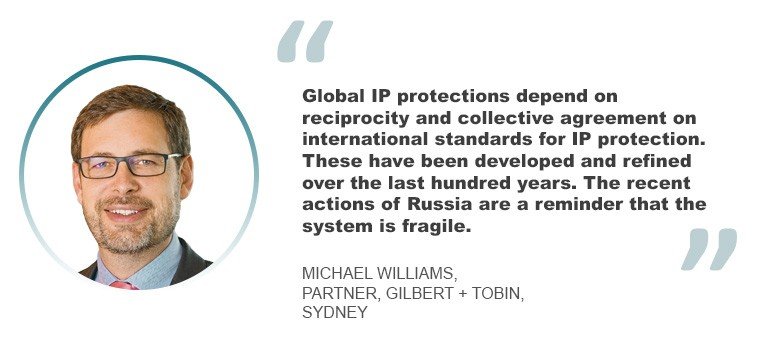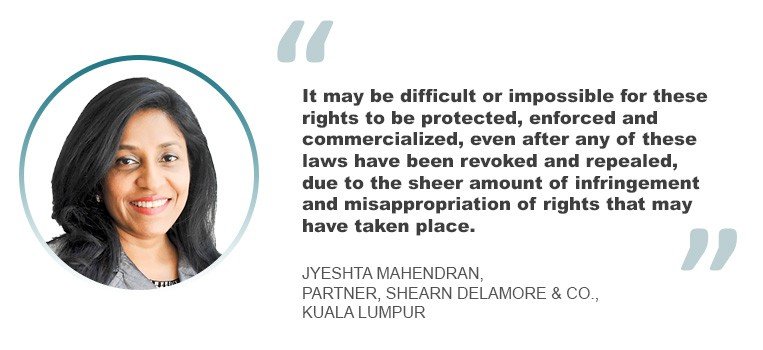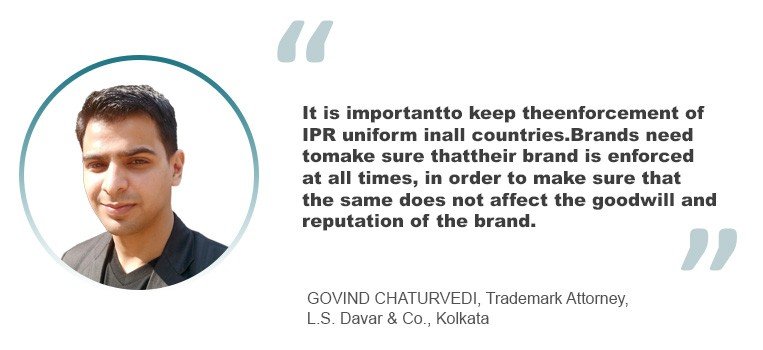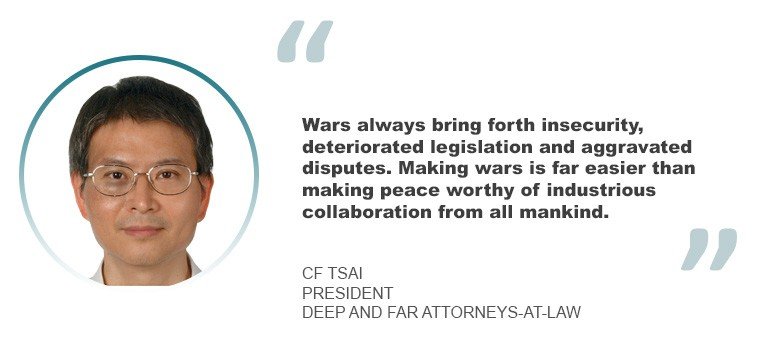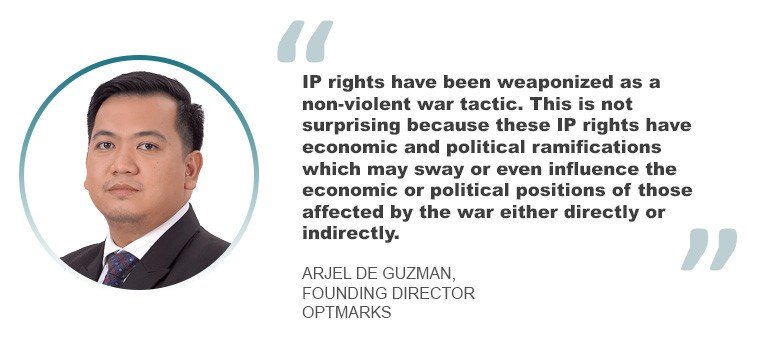How wars affect IP
De Guzman says that wars have always affected how society is being molded. “Many international treaties and conventions were adopted in the aftermath of wars,” he says. “The United Nations, including WIPO, were established as a necessary consequence of war.
Legislation is likewise affected by wars where countries adopt policies to institutionalize how the state regards wars and related activities.”
He adds: “States have been historically able to spearhead municipal and local organizations because of the impelling need brought about by war. Take for example during the second World War, when air supremacy seemed to be the goal of every country engaged in war. In the U.S., European-designed airplanes were prevalent because, as some have commented, the Wright Brothers held a broad scope of patent rights which stunted the growth of the airline industry. Such a situation caused the U.S. government to create the Manufacturers’ Aircraft Association (MAA), a trade association that actively encouraged its members to cross-license their airplane technologies through a patent pool in support of the country’s war effort.”
For Williams, global IP protections depend on reciprocity and collective agreement on international standards for IP protection. “These have been developed and refined over the last hundred years,” he says. “The recent actions of Russia are a reminder that the system is fragile and vulnerable to being undermined by any state that ceases to abide by its international obligations.”
He adds that aggressors may be tempted to engage in illegal conduct under international or domestic laws in times of war. “Historically, cyberattacks and product counterfeiting are tempting options for aggressors to cause damage to other countries or gain financially through illegal means in times of war,” he says. “The current war will drive Russia further apart and expose it to international sanctions, trade retaliation and claims against its businesses and assets, including IP assets, abroad. The IP system will largely exclude Russia from its protection. These steps will be taken through forms of legislation – international legislation through declarations and domestic laws.”
Meanwhile, disputes are likely on the rise in international tribunals and in local domestic courts of countries and businesses affected by Russia. These are likely to run for many years, including decades to come.
Mahendran says that the proprietors of intellectual property rights may potentially lose their rights indefinitely without the prospect of regaining them. “It may be difficult or impossible for these rights to be protected, enforced and commercialized in the country in question, even after any of these laws and decrees have been revoked and repealed, due to the sheer amount of infringement and misappropriation of rights that may have taken place,” she says. “Loss of priority, novelty, moral rights and unauthorized disclosure, among others, can result in irretrievable loss of IP rights. IP owners will be less than willing to invest and set up business in a country where the creations of their mind will be easily misappropriated and not given the protection that should be rightly accorded. The infiltration of e-commerce and the digital space has further created an environment which has amplified the incidence of cyber attack targeted at IP rights which become even more vulnerable during trying times such as in the face of the present ongoing conflict.”
This is echoed by C.F. Tsai, president at Deep and Far Attorneys-At-Law in Taipei, who says, “Wars always bring forth insecurity, deteriorated legislation and aggravated disputes. Making wars is far easier than making peace worthy of industrious collaboration from all mankind.”



